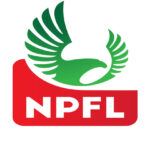With a capacity of 1,338 megawatts (MW) of electricity generation in Kainji and Jebba hydropower plants in Niger State, the concessionaire, Mainstream Energy Solutions Limited (MESL), is developing an industrial park, and a Free Trade Zone (FTZ) for industrialisation.
The Managing Director of MESL, Engr. Lamu Audu, stated this recently at Kainji plant when the Commissioner for Energy and Mines at the Economic Community of West African States (ECOWAS), Mr Sediko Douka, toured the plants.
Audu said the initiative was targeted at evacuating stranded (excess) power from the plants. “We are planning to set up an industrial park to find a way of selling bulk power to industries. We believe that is another opportunity for West African member countries to key into this project which we call Hydropolis Investments Limited (HIL),” he said.
HIL is a subsidiary of MESL incorporated on January 18, 2016. The industrial park is guaranteeing the constant supply of electricity and water through the Kainji plant and lake.
MESL has acquired 842.7 hectares of land for the park which will comprise an industrial zone, commercial zone and a residential zone. The industrial zone will have all the infrastructures to enhance industrial revolution in the zone. There will be an agro-centre for the processing of fish, dairy and meat products.
It will also have a hotel, golf course, restaurant and other resort features.
MESL said it has paid compensation and resettled inhabitants from the acquired land. It has developed a new resettlement area with modern health centres, school, market, central mosque, a community hall and solar powered boreholes.
On the impact, Engr. Audu said: “It will have a multiplier effect at the end because besides selling power, it will generate huge employment, enhance interaction between Nigeria and neighbouring countries and be a hub for a free trade zone. That will make it easy for people to set up industries and sell their products.”
Both Kainji and Jebba plants have an installed capacity of 1338MW: Kainji has 760MW capacity but designed for 960MW, while Jebba has 578.4MW. The plants were concessioned to Mainstream in 2013.
Audu said with the recovery programme, both plants can now generate 922MW, far above the 400MW they. met solely in Jebba. Kainji plant now delivers 440MW while Jebba delivers 482MW.
The Chief Operating Officer (COO) of the plants, Mr Jose Villegas said the plants generated 3.157 million megawatts hour (MWH) into the national grid in 2014; 3.808m MWH in 2015; and 5.454m MWH in 2016. In 2017, they generated 5.503m MWH and 5.277m MWH in 2018.
It installed a satellite-based Inflow Forecasting System in 2017 which helped to predict water level on the River Niger for maximum power generation.
From January to June 2019, the two plants contributed about 16 per cent to the national grid which is about 2.5m MWH, Villegas noted.
The MESL boss also explained that Mainstream Foundation utilised one percent of the income from MESL for Corporate Social Responsibility (CSR) in host communities. “We have been doing quite a lot of projects targeted at education, health, environment, empowerment and capacity building,” Audu said.
MESL is also planning the Mainstream Academy to promote capacity building in the power sector. “It will complement the training centres we have around us in Kainji and those that are recognised by WAPP as Centres of Excellence like the one in Ghana and Cote D’Ivoire which will be our partners.”
In his address, the Commissioner for Energy and Mines at ECOWAS, Mr Sediko Douka, said the community has 15 member countries with challenges in the energy sector.
“It is just around 40 per cent energy access. When we come to the rural areas, energy access is less than 10 per cent. We also have issues of tariff as it is really high because of the limited energy access,” he said.
To address these, he said ECOWAS created some bodies like the West African Power Pool (WAPP) with headquarters in Cotonou, Benin Republic, adding “I am very happy that Mainstream is one of those active members of the power pool.”
ECOWAS launched the Regional Electricity Market in 2018 and will be implemented by January 2020, after WAPP interconnects some member countries like Gambia, Guinea Bissau, Senegal and Burkina Faso, Douka noted.
Douka said WAPP’s North Core transmission project will interconnect Nigeria with Togo, Benin, Niger and Burkina Faso. “I am sure it will interest Mainstream because most of the countries are neighbouring your two power plants which are Kainji and Jebba dams.”
He said an ECOWAS energy masterplan targets 16,000MW power generation from this year to 2033. “Most of this generation (70 per cent) should come from renewable energy and we are very happy that you have ongoing project to increase your capacity by 200MW.”
Appraising the prospect of MESL to be a major player in the regional electricity market, he said, “I saw that you have availability of almost 1,000MW and that is about three times the demand of Niger Republic. There are many countries of ECOWAS that don’t have such capacity.”
MESL to divest across borders
Engr. Audu further revealed plans for the acquisition of some small hydropower plants in Nigeria, and to go beyond the borders to Cameroon in the West African sub-region.
“We want to use the opportunity of your office to see if we can have information on how we can really intervene in the West African region in terms of generation,” he explained.
Responding, the ECOWAS commissioner lauded the move, saying there are such opportunities for hydropower investment in Guinea from where the River Niger flows to Nigeria, and in some parts of Cote D’Ivoire.
“There are potentials in Liberia where they don’t have a power grid yet. We can meet again and I will give you an overview and other information within the region on the potentials,” Douka added.




